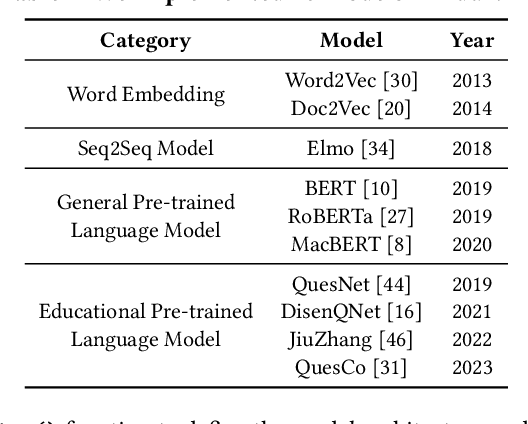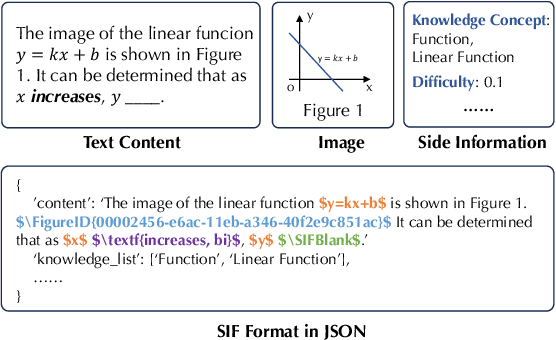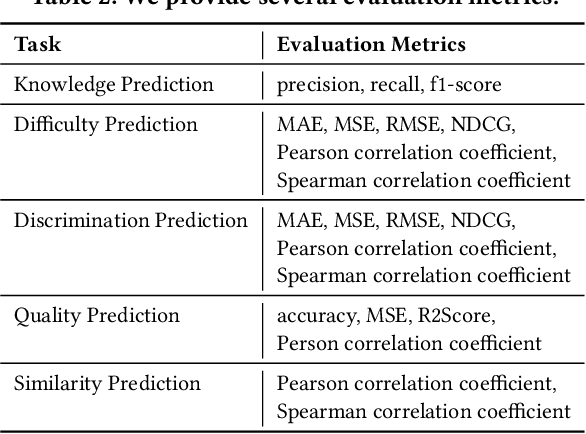Longhu Qin
EduNLP: Towards a Unified and Modularized Library for Educational Resources
Jun 04, 2024



Abstract:Educational resource understanding is vital to online learning platforms, which have demonstrated growing applications recently. However, researchers and developers always struggle with using existing general natural language toolkits or domain-specific models. The issue raises a need to develop an effective and easy-to-use one that benefits AI education-related research and applications. To bridge this gap, we present a unified, modularized, and extensive library, EduNLP, focusing on educational resource understanding. In the library, we decouple the whole workflow to four key modules with consistent interfaces including data configuration, processing, model implementation, and model evaluation. We also provide a configurable pipeline to unify the data usage and model usage in standard ways, where users can customize their own needs. For the current version, we primarily provide 10 typical models from four categories, and 5 common downstream-evaluation tasks in the education domain on 8 subjects for users' usage. The project is released at: https://github.com/bigdata-ustc/EduNLP.
A Novel Approach for Auto-Formulation of Optimization Problems
Feb 09, 2023



Abstract:In the Natural Language for Optimization (NL4Opt) NeurIPS 2022 competition, competitors focus on improving the accessibility and usability of optimization solvers, with the aim of subtask 1: recognizing the semantic entities that correspond to the components of the optimization problem; subtask 2: generating formulations for the optimization problem. In this paper, we present the solution of our team. First, we treat subtask 1 as a named entity recognition (NER) problem with the solution pipeline including pre-processing methods, adversarial training, post-processing methods and ensemble learning. Besides, we treat subtask 2 as a generation problem with the solution pipeline including specially designed prompts, adversarial training, post-processing methods and ensemble learning. Our proposed methods have achieved the F1-score of 0.931 in subtask 1 and the accuracy of 0.867 in subtask 2, which won the fourth and third places respectively in this competition. Our code is available at https://github.com/bigdata-ustc/nl4opt.
 Add to Chrome
Add to Chrome Add to Firefox
Add to Firefox Add to Edge
Add to Edge